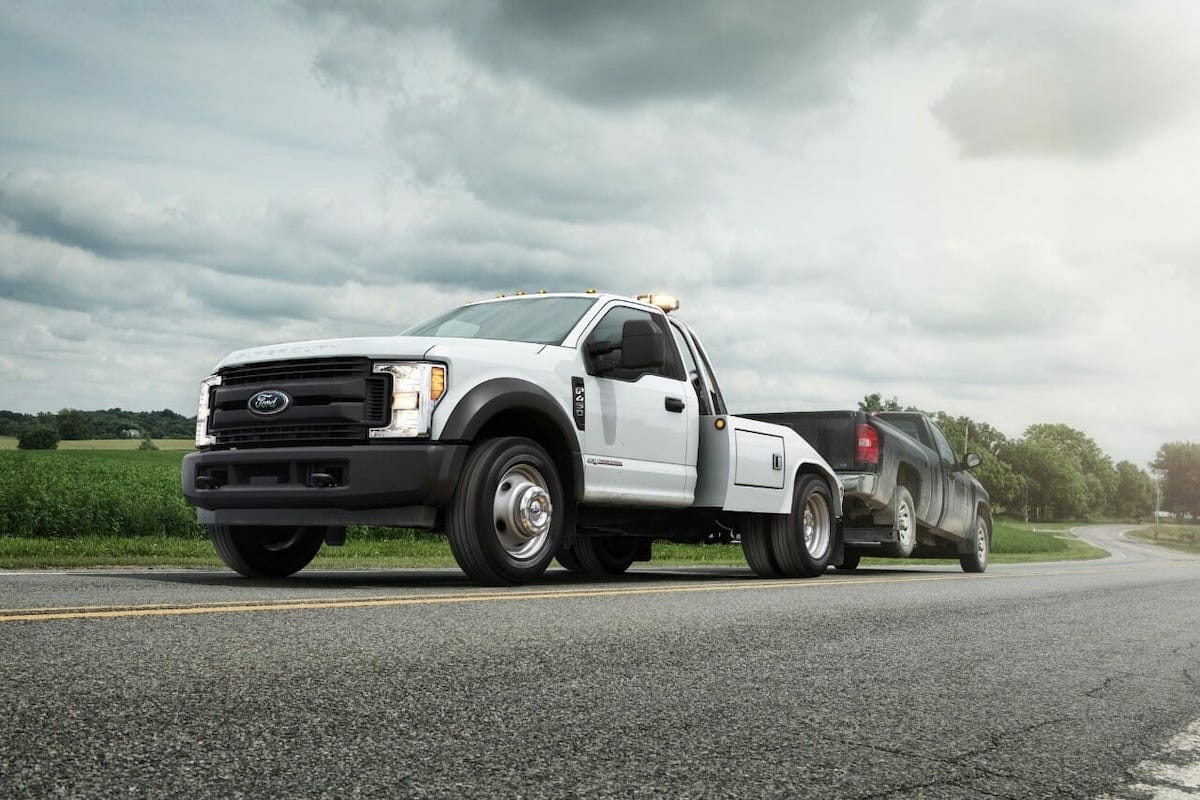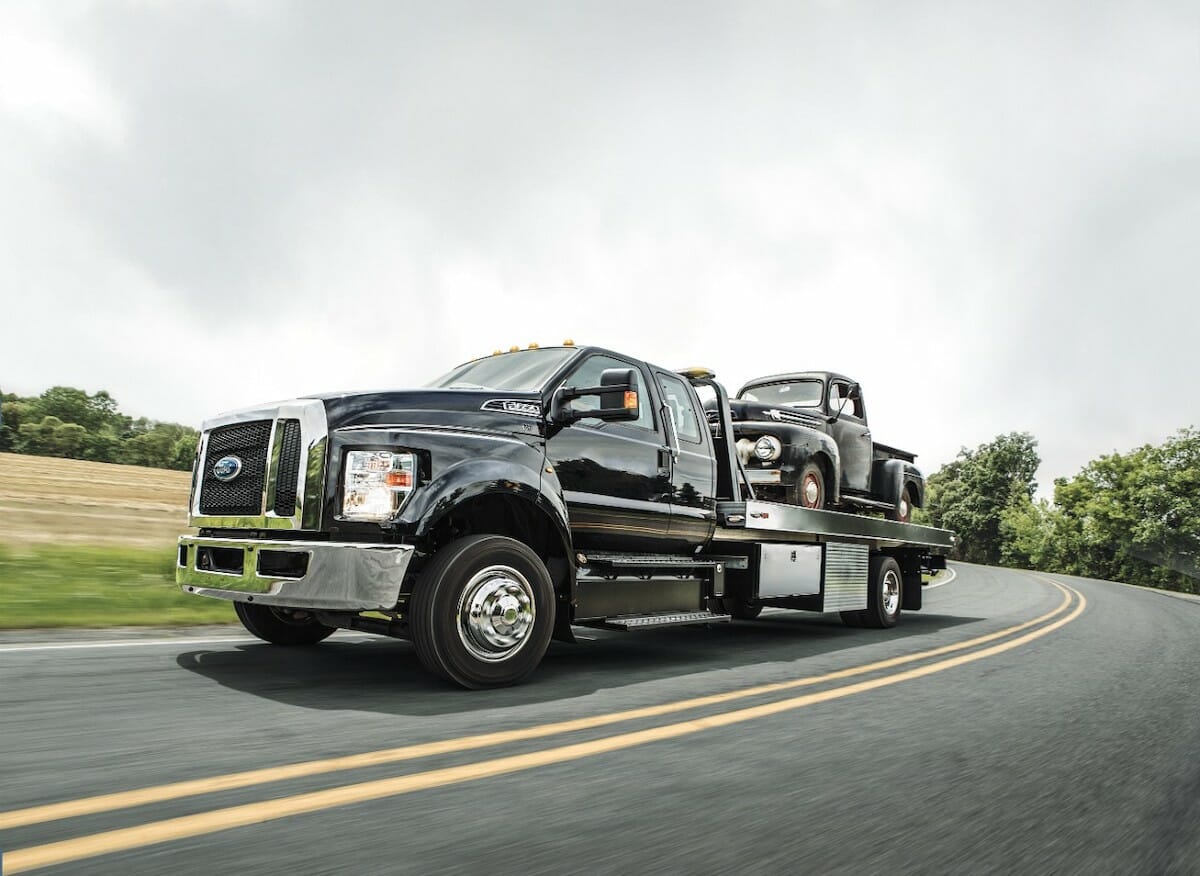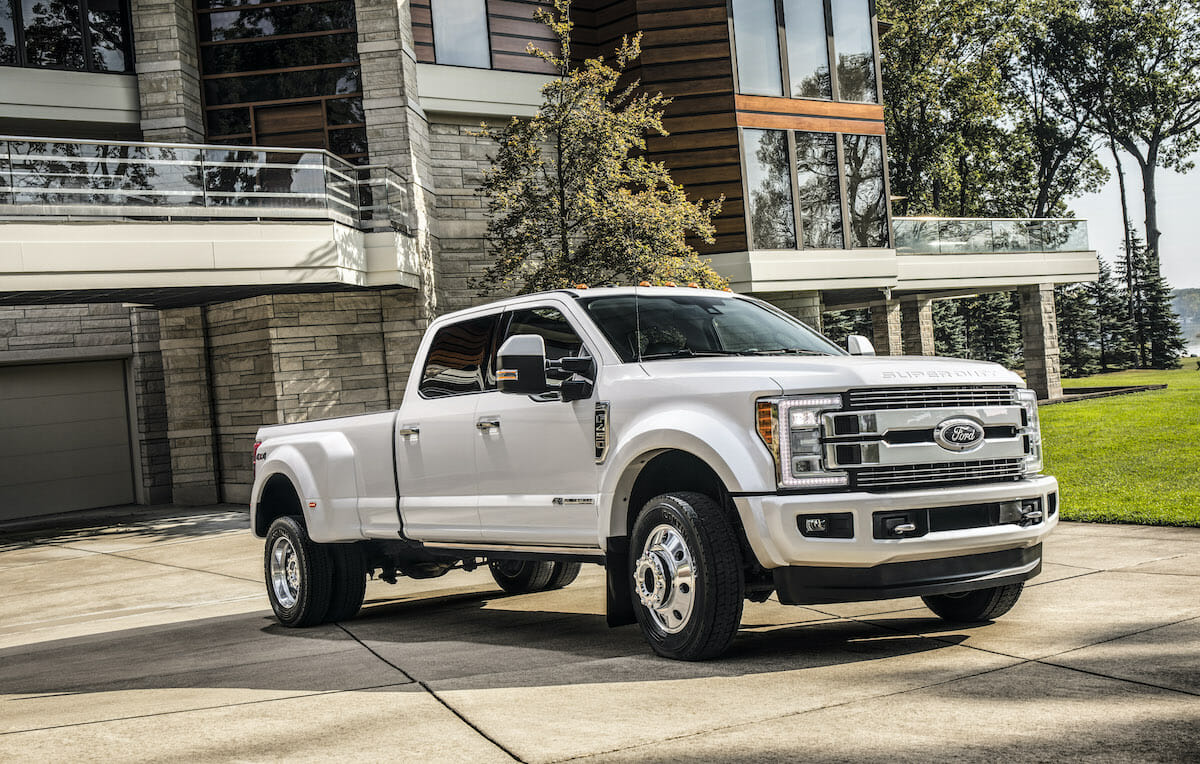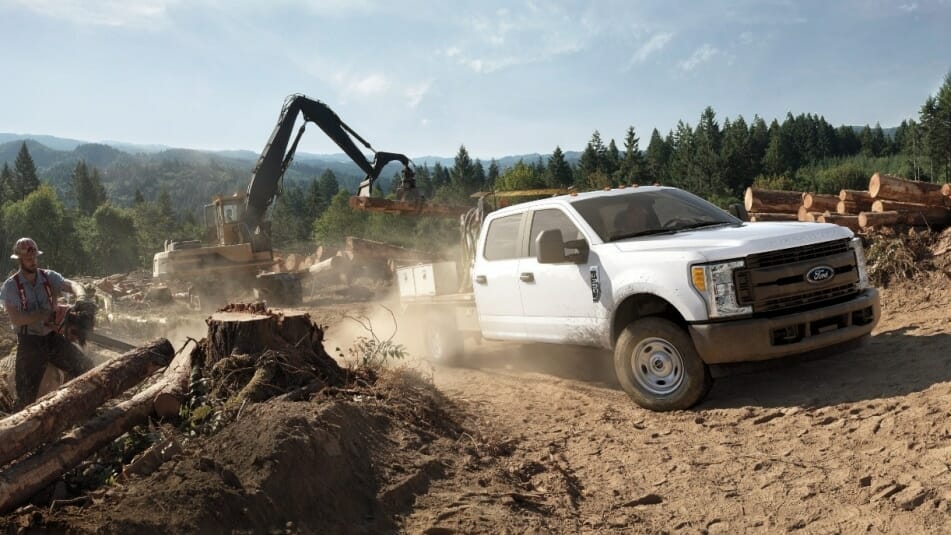Why did Ford stop making the V10? We explore the engine's common problems and answer key questions about its reliability.

Ford has made a number of famous engines over the years. One engine that wasn't quite as famous as their 5.0-liter Coyote or 4.6-liter V8s was the Triton V10. This was a powerful engine used in many of the brand's vehicles including the beloved F-250 and F-350 Super Duties.
The Triton V10 has a strong reputation for durability and reliability, however, it also had several potential problems worth knowing about, including a cracking PCV valve hose, spark plugs that would eject out of the cylinder heads, and exhaust manifold bolt failures.
In this piece, we take you through a brief history of the Triton V10 and its aforementioned problems, as well as answer key questions regarding this engine and its reliability. Let's begin.
Is the Ford V10 a Good Engine?

This naturally aspirated single overhead cam workhorse known as the Ford V10 was first launched in 1999 and stopped production after 2019. The engine produced 360 horsepower and 460 lb.-ft. of torque. It was included in a number of both commercial and recreational Ford trucks as part of Ford's Modular engine family. Most notably, it was included in Ford's Super Duty trucks, including the F-250 and F-350.
It was also included in the F-450, F-550, F-650, and F-750. This engine impressed the automotive press right off the bat, including Motor Trend. In the site's road test of the 1999 F-350 Super Duty Crew Cab, Motor Trend praised the Triton V10, saying it "may be the best of Ford's Modular engine family."
The 6.8 V10 was also included in Ford's Econoline vans, F-53 Motorhomes, and the popular Ford Excursion heavy SUV.
The Triton V10 was also the blueprint for one of Ford's more adventurous prototype projects in 2004. The project saw the Blue Oval heavily modifying the engine before placing it inside of a Mustang.
"The project started as a 'what if' idea in the early 2000s by Ford's Powertrain Research and Advanced Engine Development group, headed by Kevin Byrd, who you may recognize as part of the dynamic duo on the TV show Two Guys Garage," explained Hot Rod magazine in a 2018 article.
Now that we've gone over a brief history of the Triton V10, it's time to get into the issues. For a preview of what's to come, check out 1A Auto's video coverage of the top 1999-2007 Ford F-250 engine problems, above.
Ford V10 Problem #1: Spark Plug Blowout (Pre-2002)
In the 6.8-liter V10 used in Ford vehicles pre-2002, there was a fundamental design flaw. This issue would cause several different kinds of incidents in which one of two things could happen. The first is that the spark plug would eject out of the cylinder head. You heard that right, the plug would reportedly shoot out of the cylinder head.
This issue created a loud popping noise and consequently a noticeable lack of engine power. It was prevalent enough of a problem to spark conversations on enthusiast forums like RV Forum and inspire coverage on auto sites like Motor Week.
Additionally, the malfunctioned spark plug could also weld itself to the head. These were serious issues that were not only expensive to fix but also damaging to the engine if not dealt with as soon as possible.
In a number of reported complaints to the National Highway Transportation Safety Administration (NHTSA), owners reported this issue happening to their pre-2002 Ford Super Duty trucks equipped with the Triton V10 engine.
"Many of the complaints reported that the popping sound was accompanied by some loss of vehicle power." said the NHTSA in a 2005 investigation (more information on this issue can be found on the NHTSA site under Action Number: DP05005).
This issue was solved for post-2002 Ford vehicles.
Ford V10 Problem #2: PCV Valve Hose Crack
The next problem that can occur in the Triton V10 is cracking of the PCV valve hose. PCV stands for Positive Crankcase Ventilation, and it refers to the hose that runs from the passenger side of the engine bay into the intake system.
This hose can eventually crack and break over time. Since it is designed to hold in gases and vapor from the engine, if it cracks, it can be bad news. Plus, it can lead to several additional issues.
This also proved to be a common issue among Ford V10 owners in popular RV forums, where one owner reported their PCV valve hose broken.
This issue is small but can have big consequences. Keeping an eye on the PCV valve hose and replacing it as soon as it cracks is highly recommended.
Ford V10 Problem #3: Exhaust Manifold Bolt Failure
Another common issue that can happen with the Ford Triton V10 involves the exhaust manifold, specifically, its support system. The system was comprised of small bolts that held the manifold in place underneath the engine.
However, the stock bolts would often rot and eventually break, causing exhaust leaks. This meant that exhaust fumes could come into the passenger compartment and potentially cause health problems.
Check out how one mechanic resolved the issue in the clip above from South Main Auto Repair that goes over how to fix Ford F-250 6.8 broken manifold studs.
Now that we have covered the issues of the Triton V10 engine, it's time to answer some key questions.
How Long do Ford V10s Last?

As it happens with any used vehicle, the quality and consistency of maintenance can determine how long the vehicle can last. In the case of Ford's V10, it is no exception.
The Triton 6.8 liter is a reliable engine, but with lack of care, it won't last as long as it can. Especially with pre-2002 examples that may have the previously mentioned spark plug issues.
With proper care and maintenance, these engines can easily surpass 200,000 miles. In Doug Demuro's review of a 2005 Ford Excursion, (which had the Triton V10), he stated that he has heard of numerous examples of owners well surpassing 200,000 miles.
DeMuro even said that he talked to someone who surpassed over 300,000 miles. Check out the prolific auto influencer's Ford Excursion review above for a closer look at this popular SUV.
Is the Ford V10 Reliable?

The Ford V10 is a very reliable engine. It produces a lot of power and torque and did so dependably for the better part of two decades. Ford trucks with this engine were the go-to work vehicle for many.
Vehicle History 's real-owner reviews of the 2000 Ford Super Duty F-250 (which included the Triton V10) finds several owners praising the V10's power and dependability. The nearly 50 real owner reviews also netted the SUV 4.5 stars from the five-star rating system.
"We have had this truck for three years now and it has been a very good running vehicle," wrote certified owner Becky K. in Dec. 2020 about her pre-owned 2000 Ford Super Duty F-250 . "We use it daily working on the farm, so it has been beat up quite a bit. And even after getting beat up, it hasn't broken down other than normal wear and tear ."
It is one thing to have power and torque. However, having reliable power and torque is a very good thing in any vehicle, especially a work truck.
If you ask people who've owned a vehicle that included the Triton V10, they will likely all tell you the same thing: It's a workhorse. Reliable, dependable, capable. Ford's 6.8-liter Triton V10 was just that. It had to have been for it to last 20 years. It was not free of problems as we have discussed. But, its strengths out-shined its weaknesses.
Photos: Ford
Frequently Asked Questions
Sep 21, 2021
Why did Ford stop making the V10?
Ford put an end to the production of the Triton V10 in 2011 for their trucks and SUVs. The 6.8L V10 did continue to be used in the E-series vans up until 2019. It is known to be a pretty reliable engine, but it just did not take off like the diesel engine options.
The V10 was not the most popular engine compared to diesel engines of the time, and now when you find them on the used market they are cheaper than the comparable diesel option. They had the benefit of being cheaper to maintain than a diesel engine, but the fuel economy was so bad that they were more expensive to run on a day-to-day basis.
Overall Ford decided to discontinue the V10 because they have been able to improve the performance and output from their V6 and V8 engines over the years through new engine architectures and turbos. This has led to no real need for a V10, and it has been retired and replaced with a V8.
How can I get better gas mileage in my Ford V10?
Getting better gas mileage in a Ford with the V10 is a tricky thing to do. The 6.8L V10 uses a lot of fuel since it is such a large engine. The easiest thing that you can do to improve fuel economy is to ensure that your tires are properly inflated. Over or under-inflated tires lead to more resistance while driving and can reduce fuel economy.
If you want to seriously improve the fuel economy there are third-party tuning chips that are available. These will change the tune on your engine to help it use less gasoline and run leaner. This can improve your fuel economy by several miles per gallon, and they are pretty easy to install using the OBD II port in your vehicle.
Doing simple modifications like a cold air intake, a throttle body spacer, or a new exhaust can also improve fuel economy. These will all allow air to flow more freely through your engine and improve its efficiency.
How much does it cost to rebuild a Triton V10?
If you have a Triton V10 you may know that it is not the most durable engine on the market. The complex V10 design is more prone to wearing out than the V8 diesel engine, or the other gasoline-powered V8 options. If your V10 is ready for a rebuild it would cost between $3,000 to $4,000 to have it professionally done.
When you take your V10 engine to a professional they will remove it from your truck and tear it all down. From there they will go through all the components, inspect them, and replace the parts that are worn out. This can be a very time-consuming process. The parts may be cheap to get, but the labor is where the costs add up.
There are used Triton V10 engines on the market for about $1,000, but with a used engine you still may need to rebuild it since it can be hard to tell the condition without tearing it all apart as well.
Posted by: maurineeiselmane04319.blogspot.com
Source: https://www.vehiclehistory.com/articles/ford-v10-problems